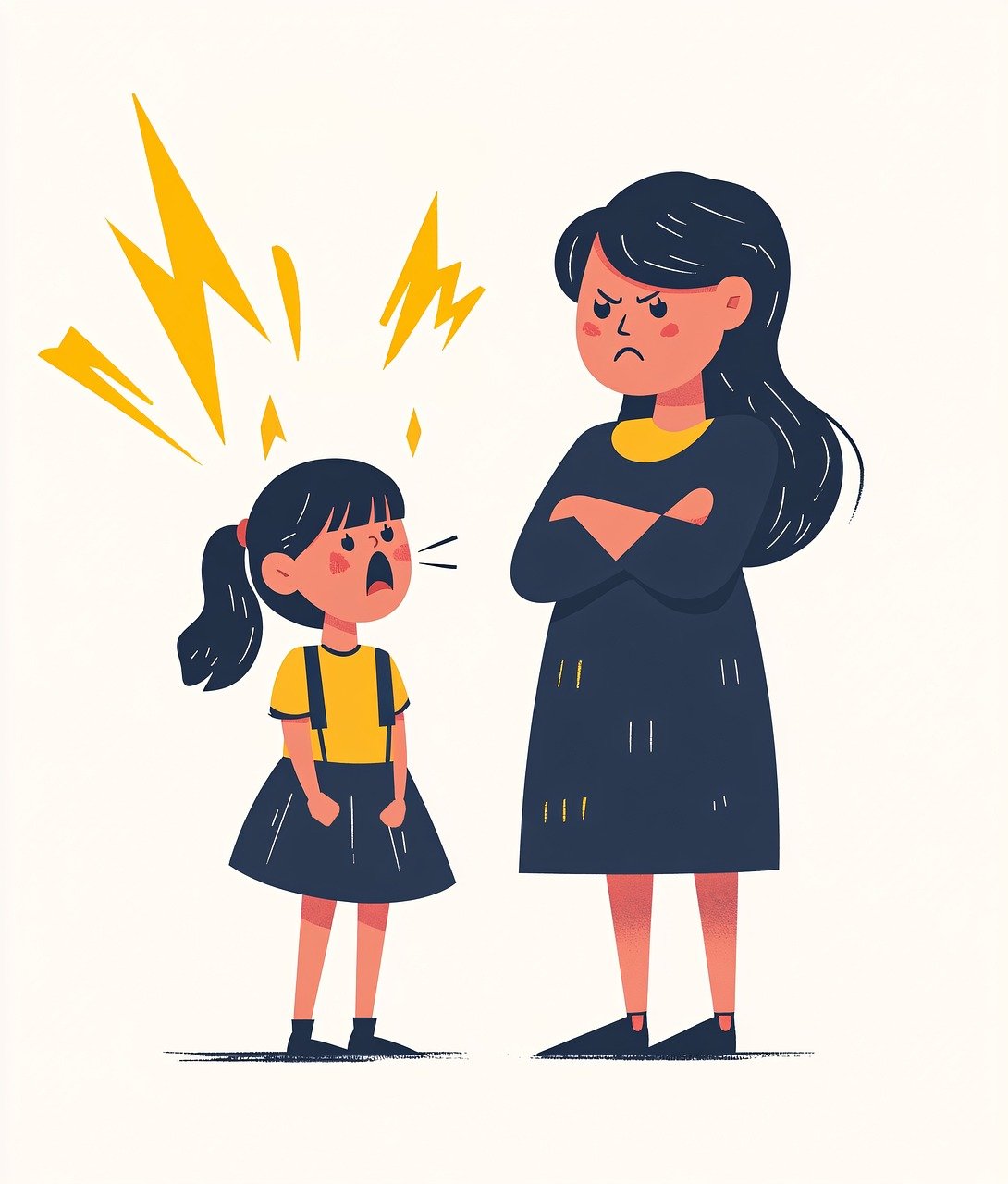Positive Discipline: A Guide by Jane Nelsen for Cooperation and Self-Discipline Skills

Positive Discipline by Jane Nelsen is an insightful parenting book that emphasizes the importance of cooperation and self-discipline skills in children. It provides valuable strategies for parents and teachers to foster a nurturing environment that encourages respect and responsibility. This guide offers a comprehensive approach to discipline, focusing on teaching rather than punishment, and outlines methods to develop essential life skills in children. Through Positive Discipline, parents and educators can create an atmosphere of kindness and firmness, ultimately helping children thrive.
What is Positive Discipline According to Jane Nelsen?
Positive Discipline, according to Jane Nelsen, is an approach to parenting and education that emphasizes the importance of teaching children valuable life skills while maintaining a supportive environment. It is designed to guide children from a three-year-old toddler to a rebellious adolescent, fostering their capability to solve problems and make responsible choices. Nelsen, a co-author of the Positive Discipline series, shares this wealth of knowledge through her experience as a popular keynote speaker and workshop leader throughout the country, including her affiliation with the University of San Francisco.
This non-punitive approach helps give children the tools they need to navigate life’s challenges without feeling guilty or inadequate. By providing helpful information and strategies, Positive Discipline encourages parents and educators to foster an environment where children are eager to learn and grow, rather than resorting to punitive measures that might leave a bite in their emotional development. The focus remains on nurturing and guiding, rather than punishing.
Understanding the Core Principles of Positive Discipline
Positive Discipline, as outlined by Jane Nelsen, is a parenting approach that combines firmness with kindness. It focuses on teaching children valuable skills rather than resorting to punishment, which can often lead to resentment and misbehavior. The core principles of Positive Discipline include mutual respect, encouragement, and problem-solving. By fostering a respectful atmosphere, parents and teachers can help children learn to navigate their emotions and actions effectively. This method encourages kids to develop self-discipline and cooperation, making them more capable individuals in the long run.
How Does Positive Discipline Foster Cooperation?
Positive Discipline promotes cooperation by instilling a sense of mutual respect and understanding between parents, teachers, and children. Jane Nelsen illustrates that when children feel respected, they are more likely to engage positively with adults and peers. The approach encourages parents to involve children in discussions about rules and boundaries, empowering them to take ownership of their actions. This collaborative atmosphere fosters a sense of belonging and encourages children to contribute positively to their environment, whether at home or in the classroom.
Key Skills Developed Through Positive Discipline
Positive Discipline is a powerful tool for helping children develop essential skills that contribute to their overall well-being. Some of the key skills enhanced through this approach include problem-solving, self-discipline, and emotional regulation. When children are taught to address their misbehavior with logical consequences and supportive guidance, they learn to analyze situations and make better choices. This skill is invaluable for their future, as it enables them to navigate challenges independently and effectively.
How Can Parents Implement Positive Discipline at Home?
Implementing positive discipline at home involves a proactive approach that fosters a nurturing environment. Parents can start by establishing clear and consistent rules, which help children understand expectations. This way, they feel secure and know what is expected of them, like a good foundation for positive behavior. Instead of harsh punishments, parents can focus on teaching appropriate behaviors through natural consequences and discussions. This method encourages children to learn from their mistakes while feeling supported and understood.
Effective Parenting Tools for Positive Discipline
Implementing Positive Discipline at home requires a set of effective parenting tools designed to create a supportive and respectful environment. One of the key tools is the use of positive reinforcement, which encourages desired behaviors through praise and recognition. Parents can also establish clear expectations and boundaries, ensuring that children understand what is acceptable behavior. Additionally, providing logical consequences for misbehavior helps children learn from their mistakes without resorting to punitive measures.
Strategies to Teach Self-Discipline Without Punishment
Teaching self-discipline without punishment is a vital component of Positive Discipline. One strategy is to involve children in the decision-making process regarding rules and consequences. By giving them a voice, parents empower children to take responsibility for their actions and understand the rationale behind the boundaries set for them. Encouraging children to set personal goals and reflect on their progress can also help cultivate self-discipline, as it instills a sense of ownership over their growth.
Building Mutual Respect in Parent-Child Relationships
Building mutual respect in parent-child relationships is crucial for the success of Positive Discipline. This involves recognizing and valuing each child’s unique perspective while maintaining clear boundaries. Parents can foster respect by actively listening to their children’s thoughts and feelings, validating their emotions, and encouraging open dialogue. This approach not only strengthens the parent-child bond but also instills a sense of trust that allows children to express themselves freely.
What Role Does Positive Discipline Play in the Classroom?
Positive discipline plays a crucial role in creating an effective classroom environment, particularly in secondary education settings. By fostering a culture of respect and accountability, educators can guide students in understanding the consequences of their actions without resorting to punitive measures. This approach encourages students to develop self-discipline and problem-solving skills, which are essential for their academic and personal growth.
Incorporating positive discipline techniques helps build strong relationships between teachers and students, promoting open communication and trust. When students feel valued and heard, they are more likely to engage in their learning and participate actively in class discussions.
Classroom Management Techniques from Jane Nelsen
Positive Discipline plays a significant role in classroom management by providing educators with effective techniques to create a supportive learning environment. Jane Nelsen emphasizes the importance of building a sense of community within the classroom, where students feel valued and respected. Implementing strategies such as cooperative learning and group activities can enhance student engagement and collaboration, fostering an atmosphere conducive to learning.
How Educators Can Encourage Cooperation Among Students
Encouraging cooperation among students is a fundamental aspect of Positive Discipline in the classroom. Educators can promote teamwork by incorporating collaborative projects and group activities into their curriculum. These experiences not only enhance learning but also help students develop valuable social skills, such as communication and conflict resolution. Teachers can further encourage cooperation by recognizing and celebrating instances of teamwork, reinforcing the idea that collaboration leads to success.
Implementing Positive Discipline in Montessori Settings
Implementing Positive Discipline in Montessori settings aligns seamlessly with the philosophy of fostering independence and self-discipline in children. In these environments, educators can create a respectful atmosphere that encourages children to take ownership of their learning. By allowing children to choose their activities and work at their own pace, teachers promote self-motivation and decision-making skills, which are essential components of Positive Discipline.
What Are the Benefits of Positive Discipline for Children?
Positive discipline is an approach that emphasizes teaching children self-discipline and respect through constructive guidance rather than punishment. One of the primary benefits is that it fosters a stronger parent-child relationship. When parents use positive discipline techniques, children feel more supported and understood, which enhances trust and communication. This, in turn, creates a safe environment where children can express their feelings and learn from their mistakes.
Moreover, employing positive discipline techniques can lead to better behavior in the long run. Children who are taught through positive methods are less likely to act out and more likely to engage in cooperative behavior, as they understand the importance of empathy and respect for others.
Fostering Valuable Social and Life Skills
Positive Discipline plays a crucial role in fostering valuable social and life skills in children. By emphasizing cooperation and mutual respect, this approach helps children learn how to build healthy relationships with their peers and adults. They develop essential communication skills, enabling them to express their thoughts and feelings effectively. These skills are vital for forming connections and resolving conflicts in a constructive manner.
Building Resilience and Resourcefulness through Positive Discipline
Building resilience and resourcefulness is a key advantage of Positive Discipline. By teaching children to face challenges head-on and learn from their mistakes, this approach instills a growth mindset that is essential for overcoming obstacles. Children become more adaptable, understanding that setbacks are a natural part of life and provide opportunities for growth and learning.
How to Overcome Common Challenges in Practicing Positive Discipline?
To overcome common challenges in practicing positive discipline, parents and teachers can draw on the insights of Jane Nelsen, a mother of seven and licensed marriage and family therapist, who emphasizes the importance of mutual respect and cooperation. By implementing positive parenting strategies, educators can create an atmosphere where children develop valuable social and life skills while learning self-discipline with no loss of control. This approach encourages teachers to be both firm and kind, helping to reduce power struggles that often arise with misbehavior, especially in challenging situations like managing a three-year-old toddler or a rebellious
In her positive discipline series and parenting books, Jane Nelsen tells us that the key to positive discipline lies in teaching children problem-solving skills and logical consequences instead of resorting to punishment. By fostering creative cooperation, parents or teachers can implement effective classroom management techniques that are both calm and constructive. Online streaming programs and videos provide valuable resources for parents and educators looking to hone their parenting tools and skills, ultimately benefiting children as they grow into capable, resourceful adults.
How Educators Can Encourage Cooperation Among Students
Educators can encourage cooperation among students by creating an inclusive and supportive classroom environment. One effective method is to incorporate group activities and projects, which require students to collaborate and communicate effectively. By working together towards a common goal, students learn the importance of teamwork and develop valuable social skills. Additionally, teachers can facilitate discussions that promote empathy and understanding, allowing students to share their perspectives and learn from one another.
Developing Problem-Solving Skills in Children
Positive discipline significantly contributes to the development of problem-solving skills in children. By encouraging children to think critically about their actions and their consequences, positive discipline fosters an environment where they can explore various solutions to conflicts. Instead of relying on punitive measures, this approach prompts children to reflect on their choices and consider alternative outcomes. This reflective practice not only helps them learn from their mistakes but also empowers them to make informed decisions in the future.
Insights from Psychologist Dr. Jane Nelsen on Discipline
Dr. Jane Nelsen, a licensed marriage and family therapist, shares valuable insights on discipline through her work in Positive Discipline. She emphasizes the importance of understanding the underlying reasons for a child’s misbehavior, rather than simply focusing on the behavior itself. By adopting a compassionate perspective, parents can address the root causes of a child’s actions and guide them toward more appropriate responses. Dr. Nelsen advocates for a firm yet kind approach, which fosters a sense of security and respect in parent-child relationships.

